If you are looking for ways to protect your newly manufactured goods, floors, steel, concrete, or almost anything from corrosion, industrial coatings can do that for you. However, in doing so, you wouldn’t want to compromise the aesthetic aspect. It’s a good thing that industrial coatings are used for both protection and aesthetic purposes. If you are looking for ways to protect your concrete or steel from corrosion, weather, water, UV, or any other elements, it is time to consider adding another layer of protection through industrial coatings.
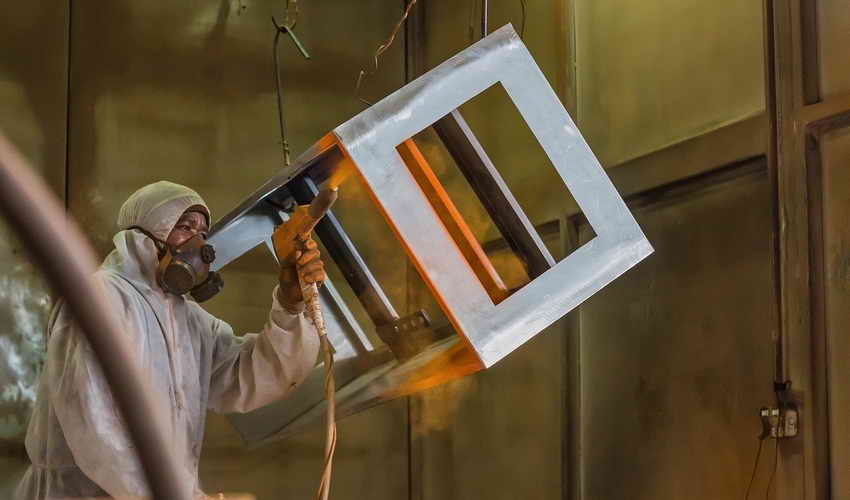
Different Types of Industrial Paint Coatings
Before you go and purchase industrial paint for your home or industrial building, it is best to learn about the different industrial coatings available in the market and how each of them works. Each type of industrial coating is made with distinct physical and chemical properties, which means there is no one coating that can protect a structure from all the elements in the environment. As a solution, different coatings are combined together to protect a substrate. So, here are the most common types of industrial coatings you should know about and their advantages and disadvantages.
Polyurethane Coatings
Polyurethane is the most commonly used type of coating. Typically, it is used as the top coat due to its abrasion resistance and durability. For instance, polyurethane may be applied over epoxy and zinc-rich primer to give a surface total protection. Polyurethane coatings have 2 categories: aromatic and aliphatic. Aromatic polyurethanes are suitable for submerged environments while aliphatic polyurethanes work well in sunlight and provide outstanding color retention. Compared to other kinds of coatings, polyurethane is considered the most versatile coating next to epoxies. They can be used as a topcoat on highways, floors, concrete walls, etc.
Pros
- Abrasion-resistant
- Can be used indoors and outdoors depending on its category
- Color retention
- High gloss
Cons
- It may contain harmful chemicals such as isocyanate
- More expensive compared to epoxies
- Will require protective equipment and skilled workers during application
Epoxies
If polyurethanes are commonly used as a topcoat, epoxy coatings can be utilized as a topcoat, intermediate coat, and primer since it is made of a curing agent and an epoxy base. When mixed with other components, it can provide different kinds of protection. For instance, epoxy mastic coatings can offer an outstanding film thickness, while epoxy polyamide coatings can provide exceptional resistance to moisture. Epoxy coatings are not known to perform well with sunlight, thus they are commonly used in submerged applications. Epoxy coatings are typically used to protect waste-water treatment facilities and steels in nuclear power plants.
Pros
- Resistant to chemicals and abrasions
- Can build film thickness
- Versatile to provide a wide variety of different coating properties
- Perfect on submerged industrial applications
Cons
- Low flexibility
- Cannot withstand UV rays
Zinc-Rich Coatings
Zinc-rich coatings offer galvanic protection on any steel surface. Instead of the steel corroding, it will be the zinc-rich coating that will corrode. When this type of coating corrodes, a barrier will be formed protecting the steel from the environment. There are two kinds of zinc-rich coating: organic and inorganic. However, any of the two types are great to use as a primer since they bond well on any steel surface. Zinc-rich coatings are usually applied on coal plants, bridges, and ships’ topside.
Pros
- Corrosion and abrasion resistant
- Highly durable
- Provides barrier and galvanic protection
Cons
- May need top coatings in most applications
- Has low alkali and acid resistance
- The surface must be properly prepared for it to work correctly
Acrylic Coatings
Acrylic coatings are used in the three coating categories – architectural, industrial, and special purpose. The acrylic coating is used in different formulations such as powder, waterborne, and solvent-borne. They are known for providing exceptional color retention and are perfect for outdoor conditions. Acrylic coatings are also popular in the automotive industry due to their high gloss and corrosion protection characteristics. However, they are not very popular in other industrial applications such as penstock, reservoirs, and tanks.
Pros
- Cost-effective
- Easy to work with
- Used in a wide variety of coating categories
- Exceptional color retention
Cons
- Must be applied with a temperature of 50°F or higher
- Does not perform well with water
Polysiloxanes
Among the types of industrial paints mentioned here, polysiloxanes are the newest in the market. Polysiloxane is known for providing excellent weather and abrasion resistance and appearance retention properties. However, it has poor corrosion resistance and flexibility, which is why it is commonly mixed with epoxies to make up for its flexibility and corrosion resistance issues. Epoxy polysiloxane coatings can be more expensive, but they last longer and the application process is easier and faster. Due to its high-performance coating system, it is widely used on marine structures, storage tanks, and highway bridges.
Pros
- Great gloss and color retention
- Can perform well even when exposed to UV light
- Long-lasting
- Work well even on very high temperatures
Cons
- More expensive than other coatings
Frequently Asked Questions
What are the different types of coatings?
There are various types of coatings but they fall under 3 categories, which are industrial, architectural, and special purpose. Architectural coatings are typically used in the exterior and interior surfaces of commercial, factories, industrial buildings, institutional, and residential. Industrial coatings are used to maintain the longevity, functionality, appearance of manufactured goods. Special purpose coatings are usually used on automotive, infrastructures such as roads, airport surfaces, and parking lots.
What are four types of coatings?
The four types of coatings are polyurethanes, epoxies, zinc-rich primers, and polysiloxanes. Polyurethanes, zinc-rich coatings, and epoxies are more suitable for steel. Polysiloxane is fairly new in the market and is commonly used in marine structures, highway bridges, storage tanks, and wastewater treatment plants.
What is industrial coating?
Industrial coating is a type of paint that can be applied to different surfaces such as steel, wood, metal, or concrete. It is intended to protect and add beauty to any surface. Industrial coatings are used to control corrosion on concrete and steel. Sometimes they are also used as added safety measures since most of them are fire-resistant. The application process consists of a primer, full coating, and lastly a sealant. There are several types of industrial coatings that are designed for different purposes.
What are the different types of industrial paints?
There are different types of industrial paints but the most commonly used are alkyd paint, vinyl coating, chlorinated rubber coating, epoxy coating, and epoxy mastic coating. Each of these industrial paints has its own advantages and limitations. This is why it is important to choose the right industrial paint to use to ensure it can withstand the environments it will be exposed to. Remember some can withstand high heat or UV light, while others are not designed to perform well in those environments.
Conclusion
It is important to learn the different types of industrial coatings to find out which one is the best coating system for you. Several factors need to be considered such as environments, materials and equipment needed, price, durability, and application process. A good painting and coating company like Extreme Epoxy Coating would be able to give you sound advice on which coating system to use in case you are not sure which one you need.

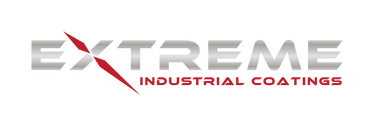
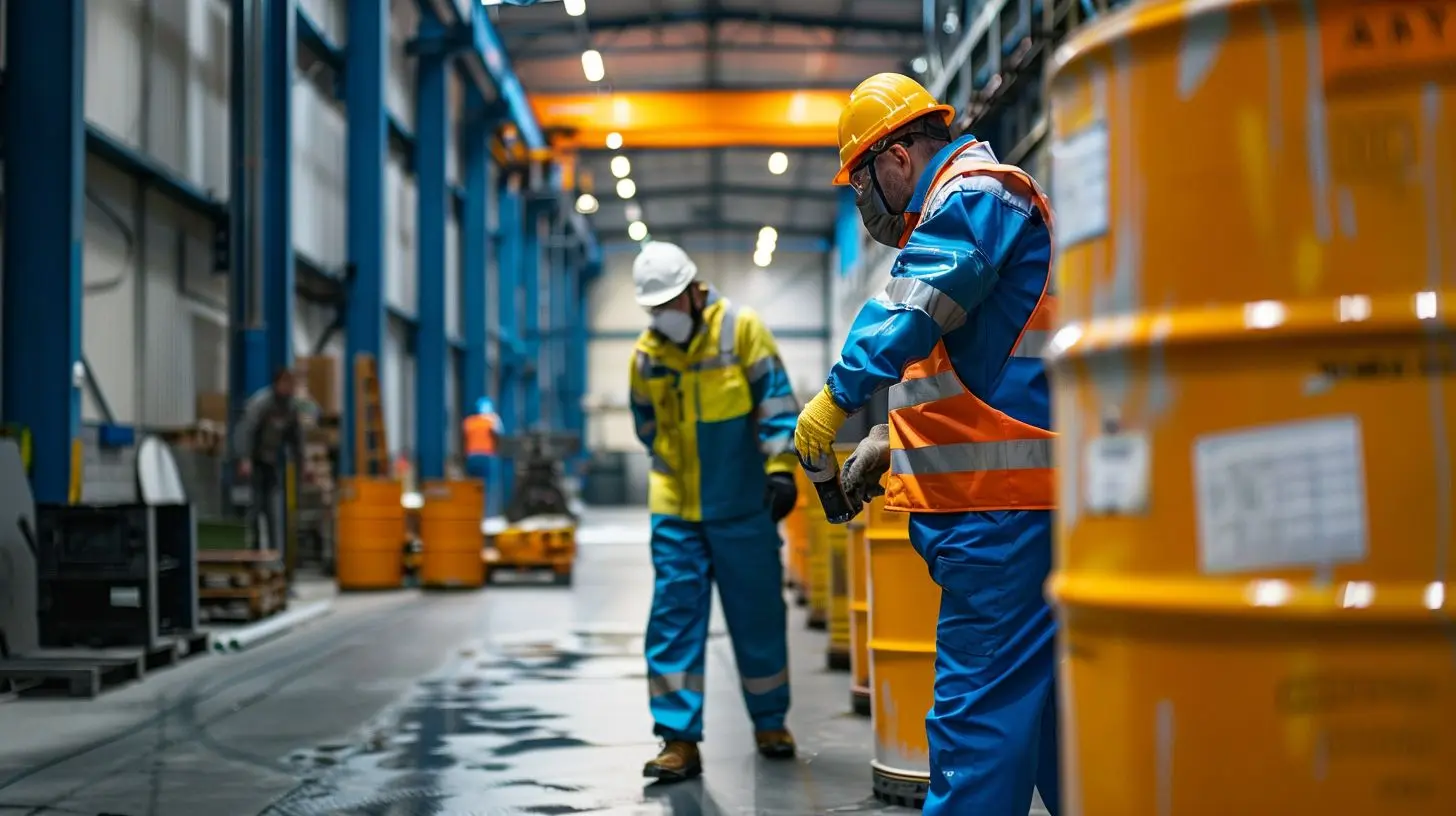
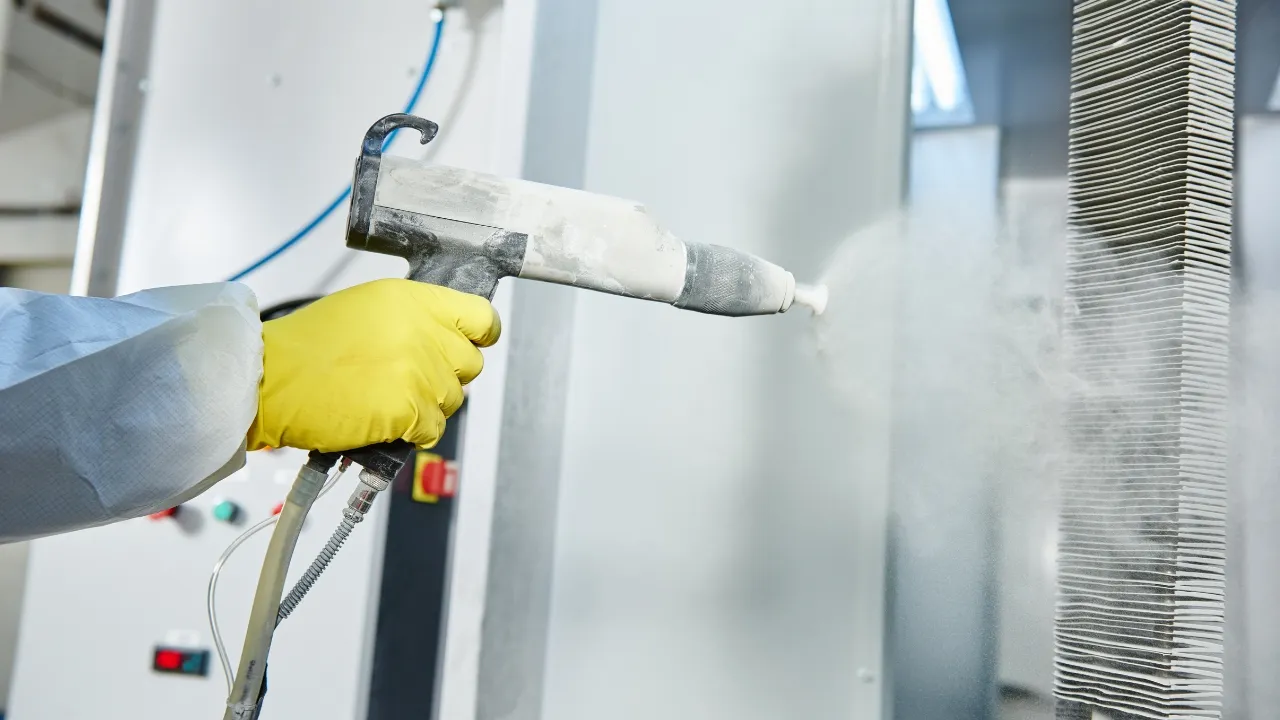
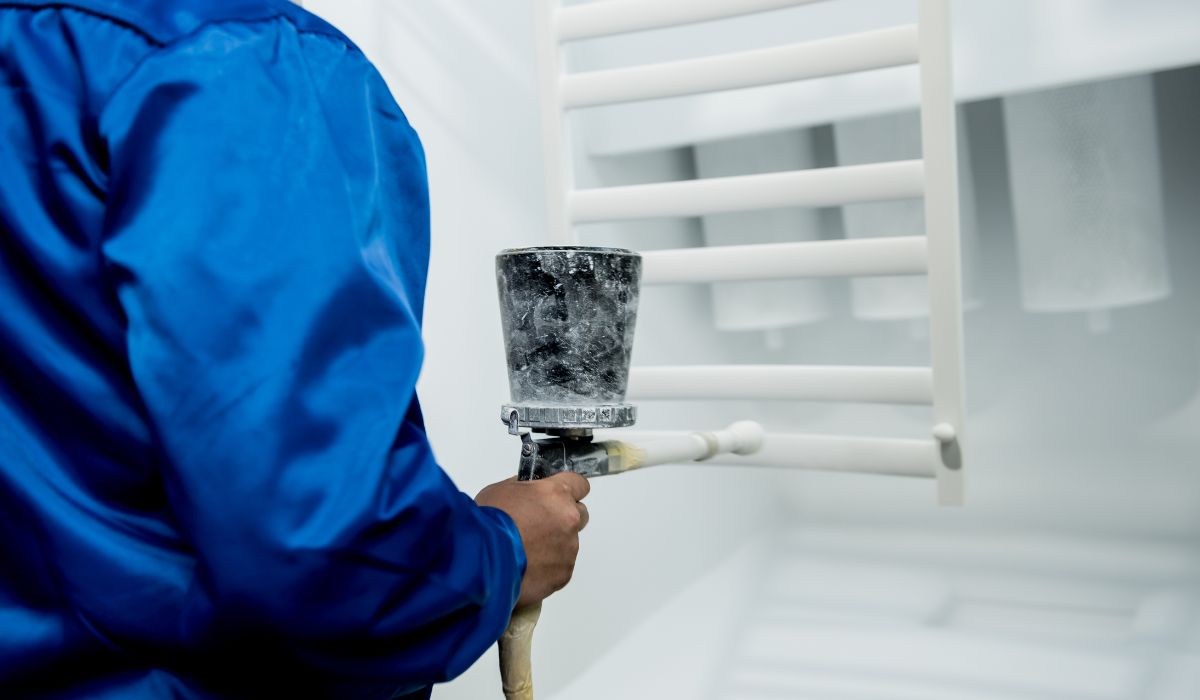
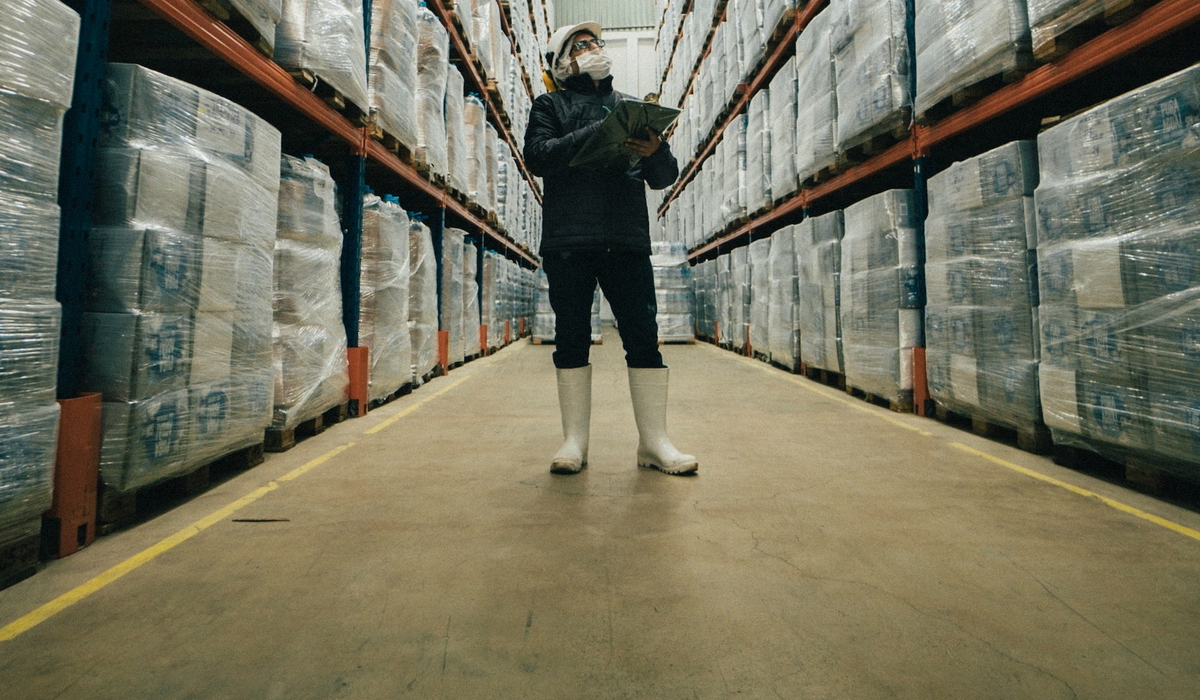
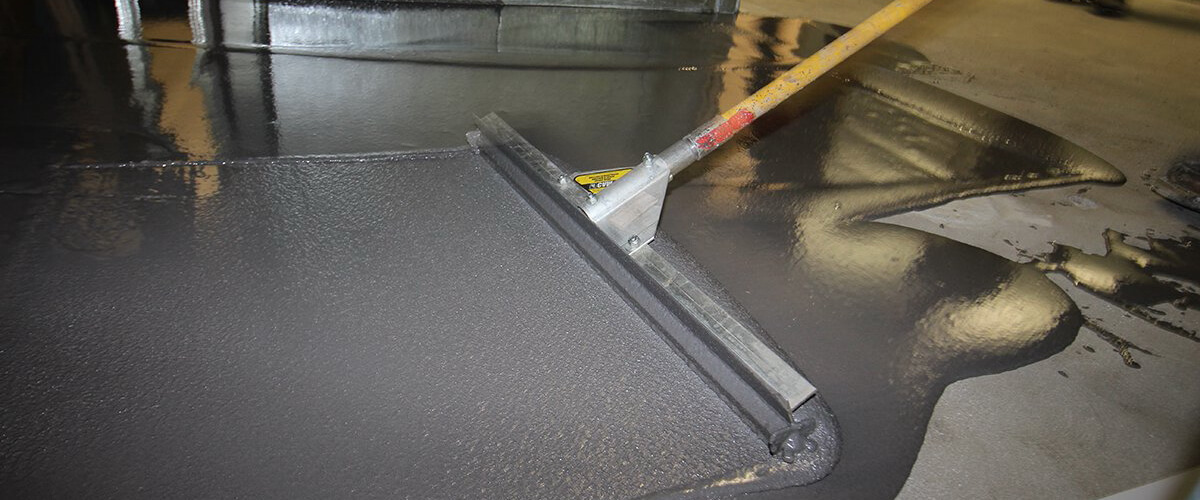
Thank you for explaining to us that industrial coating can be applied to surfaces like steel or other metals to control corrosion along with adding safety measures like fire resistance. My brother manages a welding shop, and since they work with a lot of metal products, one of their main objectives is to make sure they don’t corrode and rust easily. I’ll keep this in mind while I help him find a provider to contact about the industrial coating services he needs for his shop soon.